We were unable to bring together all those who, over the years, contributed, every month, to producing content, new ideas and always looking closely at what was happening at the Faculty.
A group involved from the heart, but the truth is that everyone accumulated roles, producing the newsletter in the interval of a time that was not enough for everything. They managed it with pride, dedication and such involvement that in the newsletter’s first year of life, it won the Grand Prix – Excellence in Communication, competing for the webletter category, in a partnership between FMUL and SPIRITUC.
It was known that after the initial bubbling of ideas, then made palpable and concrete, the difficult thing would be to keep going on, ideas would run out, time would be less available, and some people would end up dropping the project in the need to carry out their mandatory professional goals. But the newsletter continued and is 11 years old, with 100 issues.
There were times when the team was bigger, and others when it was reduced to so few people that it almost got empty, like a heart that starts to fade. This may have been one of the toughest phases of a solid newsletter, whose content manager was absent on maternity leave. But a few stayed on, without giving up, out of personal pride, perhaps because they wanted to honour what had already been done. And the newsletter hang on, sometimes more vigorous, other times lighter, like a feather swaying in the air, but it remained only due to the perseverance of many who nourished it during these 100 issues.
We tried to pay a fair tribute to all those who allowed us to get here today. Some have left the Faculty of Medicine but most are still here. The Newsletter’s first great creator has departed.
There are the testimonials of some of the people responsible for it getting here.
To all and without exception, thank you for the project that you left us with.
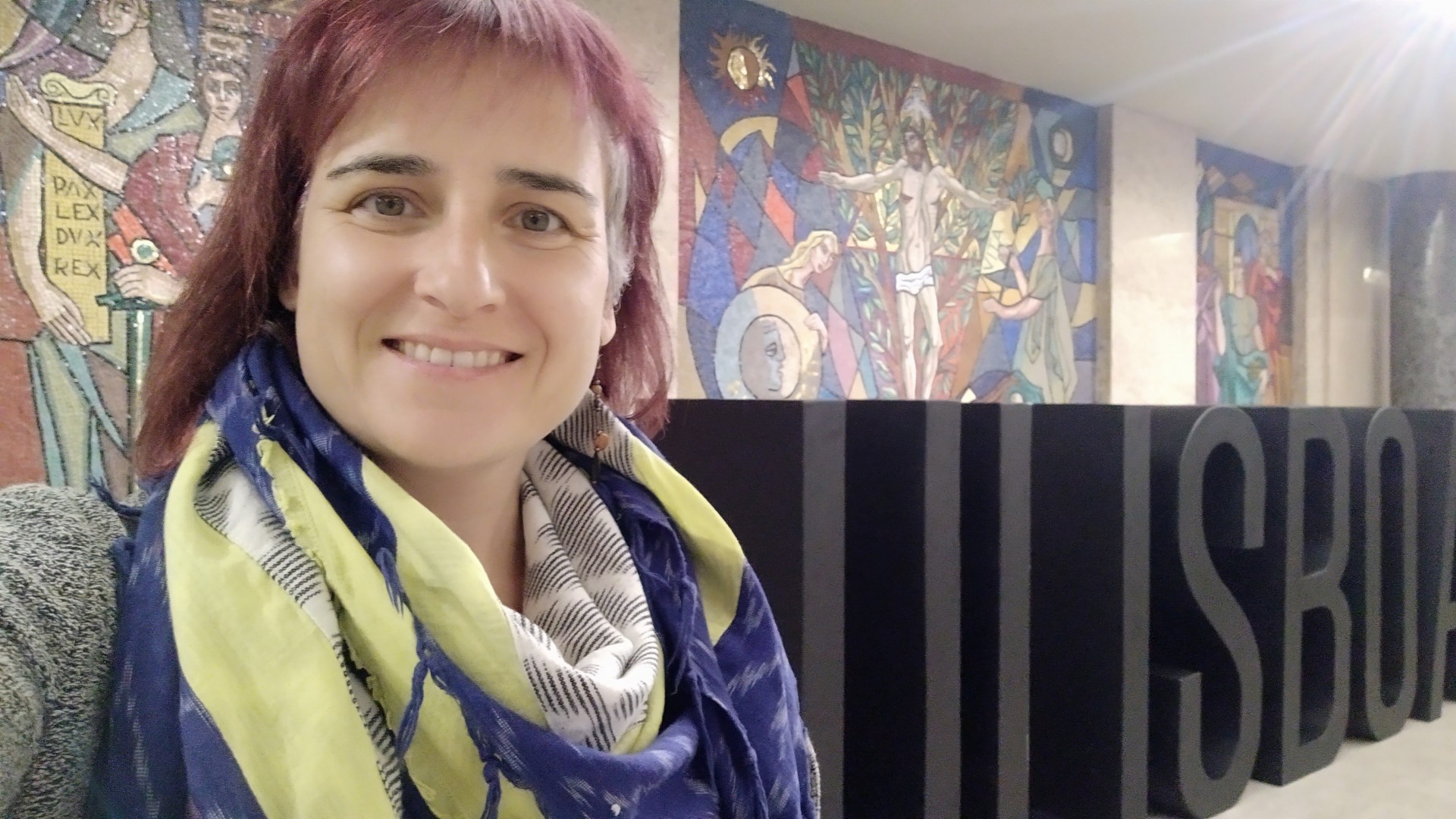
Sofia Cruz (she was part of the team that designed, put up and presented news@ fmul to the director and followed the implementation of the project and its issues. She was part of the editorial team until her departure in 2010. She currently works in the Communication Area of the Rector’s Office)
In 2007, we created an internal newsletter, something by employees for employees, nothing institutional, and completely horizontal, but which had some impact. The Board then had the vision to call us all and say: “since you are doing an internal newsletter on your own, then do it properly, invest your effort and turn it into a newsletter for the Faculty of Medicine”. And so a multidisciplinary working group was set up and designed not only the editorial, graphic and branding concept, but also defined who would be the newsletter’s editorial team, its information flows and content validation, as well the evaluation and dissemination of the newsletter.
For me, it was one of the best work experiences ever, due to the group component it involved, the meticulous care in the design of the entire project and in which nothing, but nothing, was left to chance. And it was always a very horizontal structure, very democratic in the way it brought together different contributions and visions to reach consensus. It overcame challenges and became a leading communication tool, having even won the 2009 prize from the Portuguese Association of Communication of Companies.
I am very proud to have contributed to the implementation of this project and to have been part of the News@FMUL team.
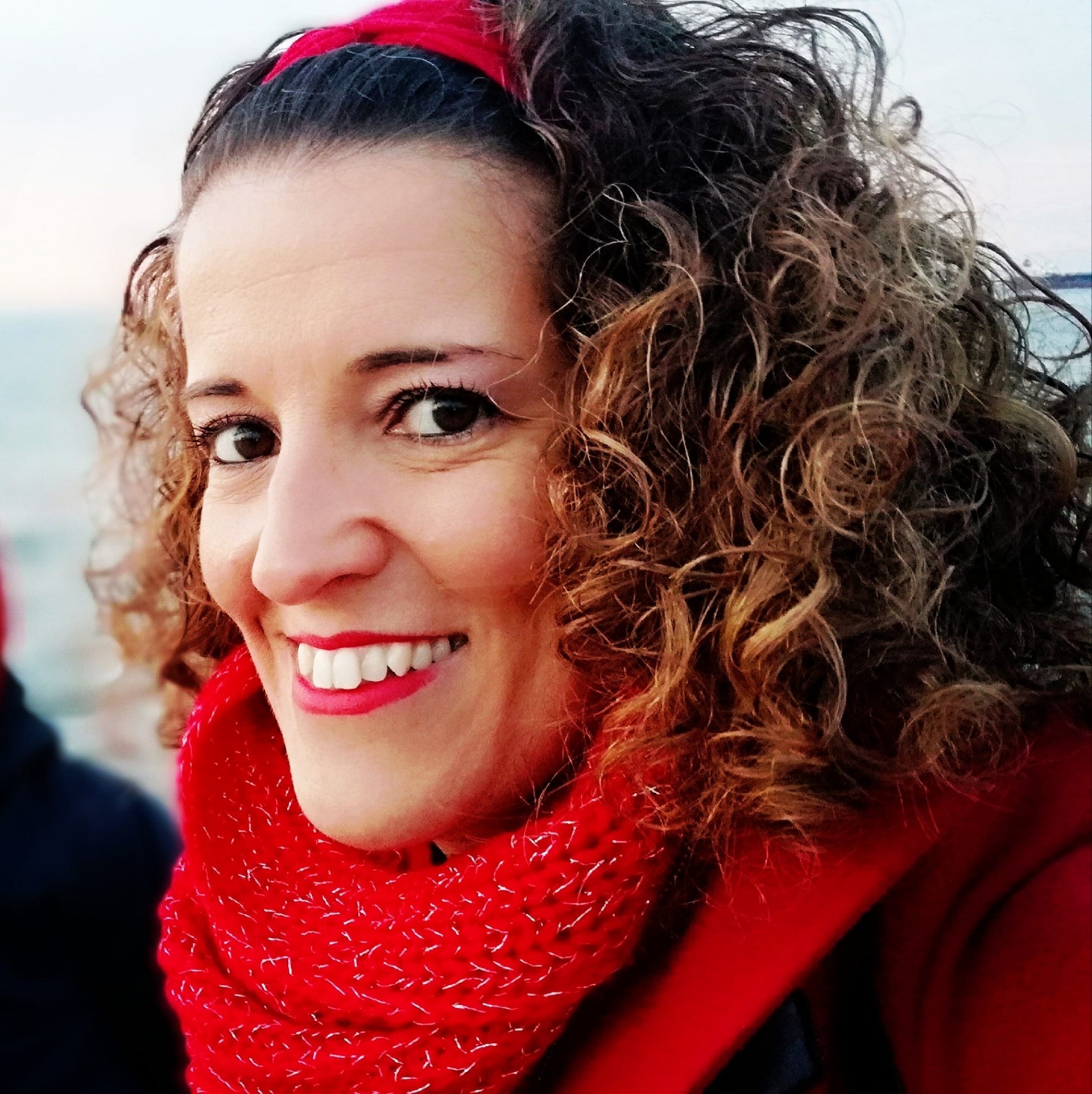
Sónia Barroso (she was part of the founding project and was on the team for 6 years. She coordinates the GAPIC and Planning Office)
Once upon a time news@fmul...
I was invited to join in 2009, at first the newsletter’s project team and, later, the editorial team. As the area of communication was not my background, I accepted the challenge confidently, as I believe that "The impossible is almost always what has never been tried".
It was 6 years of learning, teamwork, anguish, joy, and achievement.
I remember the long and hectic meetings of the editorial team to plan the issues, the stress and the race against time in the final reading before closing each issue and the feeling of accomplishment when it was published.
Halfway through, there was the need to see if we were on the right track and meeting the expectations of the target audience. Then, I had the opportunity to bring my training area to the newsletter and contribute as much as possible with my knowledge, dedicating myself to the design and treatment of questionnaires sent to readers, to the preparation and monthly publication of the “Barometer news@fmul” and the production of the newsletter’s evaluation reports.
Everything in life has its cycle and, in 2015, I decided to leave the editorial team, as there were new challenges to embrace. It was not a “goodbye”, but a “see you soon”, and I continue to cooperate voluntarily or whenever requested, because after all, it belongs to all of us!
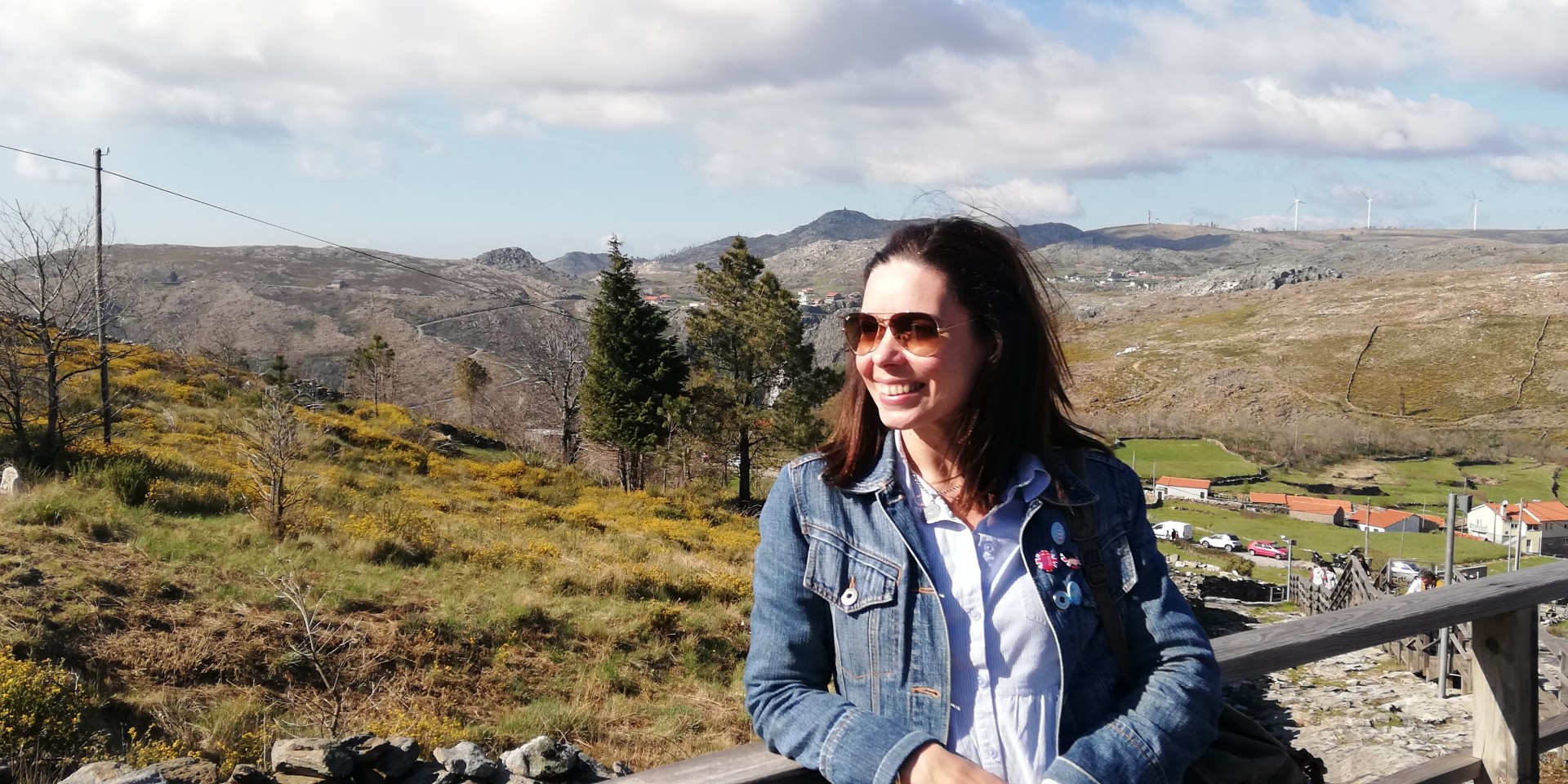
Ana Raquel Moreira (information manager for 8 years, she works in the area of Events and Public Relations)
I was part of this project for ten years and it was quite challenging, I admit.We were ten in the first editorial team. Antónia, Sofia, Rute, Dolores, Sónia, Susana, Márcia, Rui and the late Helena. We were presented with the challenge of achieving the implementation of News@FMUL, the Faculty's newsletter, designed by a “project team”.
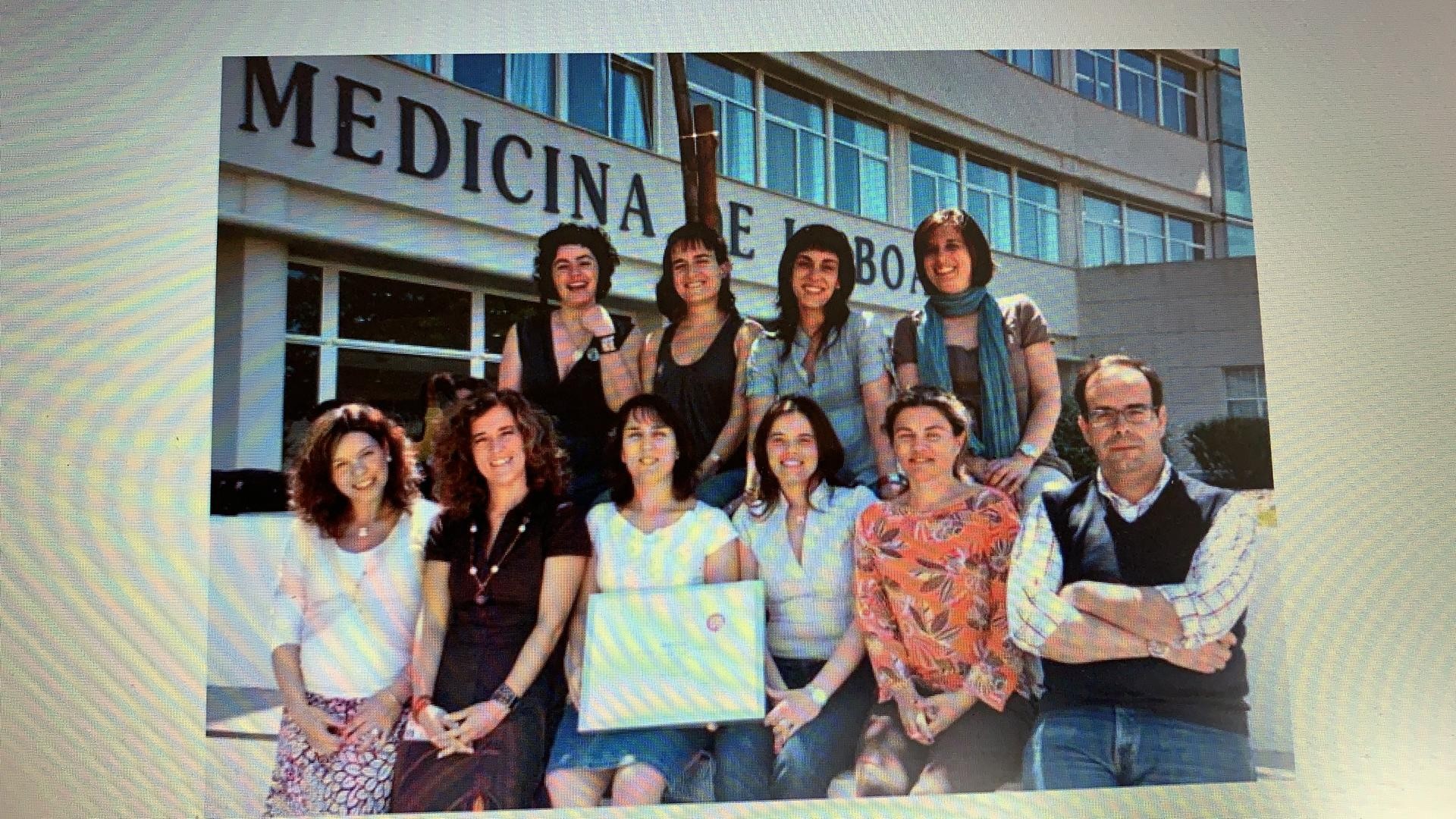
We got down to work and, despite our amateurism, we managed to produce dozens of issues. Over the years, new members have entered, many others have left, but the important thing was to move forward, build, publish and present our institution every month.
There were articles, interviews, opinion pieces, and scientific articles. It was hard work but always stimulating because it made us think, leave our comfort zone and become editors.
It was gratifying, it made me grow and made me better acquainted with my Faculty, my lecturers, my students and my co-workers. Especially, it was rewarding to see a project being born and grow!
The best of this time and the best of all? The people I worked with, the teamwork, the joint effort to meet the expectations of the Board, which placed a lot of trust in us. After all, nobody had a background in communication or had ever participated in an editorial team and there we were, building the “Institutional Newsletter of the Faculty”. Theoretical knowledge? None of us had it, but we knew our school, our lecturers, our students, our colleagues very well and this allowed us to achieve the almost impossible when we had so many other functions to perform in our daily lives.
And… we got here!
Congratulations to the Newsletter for the 100th issue, congratulations to those who were involved in it and to those who are still part of it.
For me it will always be news@fmul, designed by Helena and one day proposed to Dr David Xavier.

André Rodrigues (wrote actively for 10 years, and today he is still responsible for texts. He works at the Library)
Unique times
In the first weeks of my collaboration with the Editorial Team of the Newsletter, which extended to ten years, I remember noticing something that today is obvious: in an institution like FMUL, with so many professionals with such diverse jobs, sharing the space with the largest university hospital in the country, we are all so close and yet so far from each other.
Close in practical terms, but far away because, with the accumulation of functions and tasks, we can go weeks or even months without crossing paths or talking to many of our colleagues, without knowing what they are doing, not knowing what projects they have in hand, at least until we know the project’s final result.
It was precisely the participation in FMUL’s Newsletter that forced me to broaden my views. When we set out to disclose to readers our university clinics, departments, laboratories, colleagues, lecturers, and students, I had to overcome my shyness to go to people, to know them, to know their work and make it known to others.
I remember in particular an issue about the Institute of Anatomy: the interview with Professor Gonçalves Ferreira, the history of one of the most notable and oldest anatomy institutes in our country - I would never again look at an anatomical theatre in the same way -, which made me do research to understand the importance of the study of anatomy even in areas that apparently have nothing to do with medical sciences, such as the evolution of safety equipment in automobiles or airplanes, the clothing and fashion industry, weaponry, etc.
Of course, I always look carefully at each new issue and it is quite clear that this concern remains very present - namely in items such as Over to this Side. This is not mere curiosity. It is the people who make the institutions and, in the case of FMUL, the Faculty of Medicine that trained more doctors in Portugal, it is not too much to underline the importance of knowing who we are and what we do. Even today, I believe that, in this context, in many Public Administration large organizations, and in the business world, there is a long way to go.
In conclusion, I hope that the Newsletter continues to reflect what happens at FMUL, as well as our multiple links to civil society. It could not be otherwise. As an example, a few days ago, the first sentence of an opinion piece by Professor Fausto Pinto, Director of FMUL, in Público, made reflect, in context, on how unique the times we are now living are, simultaneously highlighting the need to listen to the experts - exactly the opposite of what we do each time we give credit or share fake news on social media.
The Professor wrote: «We live in unique times, when suddenly, what was believed to be conquered, that is, the containment of the great pandemics that plagued the world a century ago, was wrecked by the crisis resulting from the pandemic by the coronavirus covid-19».
In these unique times, when we have to stay away from each other, it is perhaps more important than ever that FMUL’s Newsletter continues to fulfil the mission it has proposed itself since its early days, for which reason I wish all colleagues on the Editorial Team the biggest success.
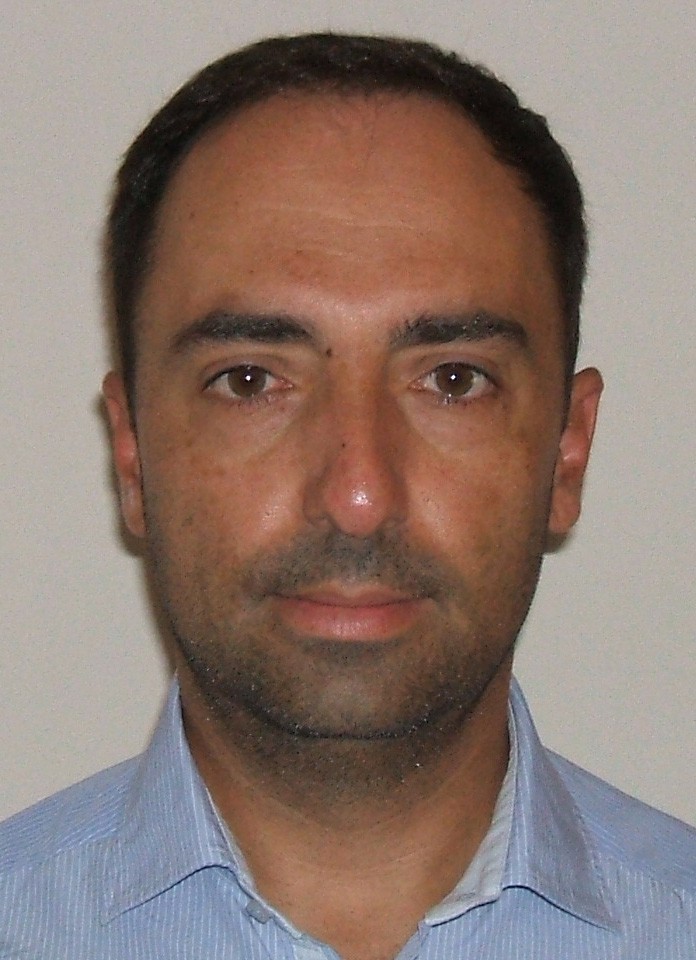
Pedro Marçal (he was involved in the initial stage and now is senior employee in the Academic Area)
I participated in the first newsletter (it was called “newsletter”, it wasn't “news@fmul”), and my involvement was so small that I'm afraid I don't have much to say. The newsletter at FMUL was an initiative by Helena Cabeleira. This much missed colleague proposed the idea to David Xavier (Secretary of FMUL). David enthusiastically welcomed this initiative and created a working group to bring this project to light.
It is important to note that at that time all public and private organizations had, or wanted to have, their newsletter.
David's idea was to create a periodic news block directed “inwards”, for non-teaching staff, made up of topics and information that were somehow representative of our colleagues.
According to the ideas that we were jointly defining, my contribution was mostly to analyse some sociodemographic indicators of non-teaching staff. Examples include District/country of origin, Birthday month, Distribution by age group.
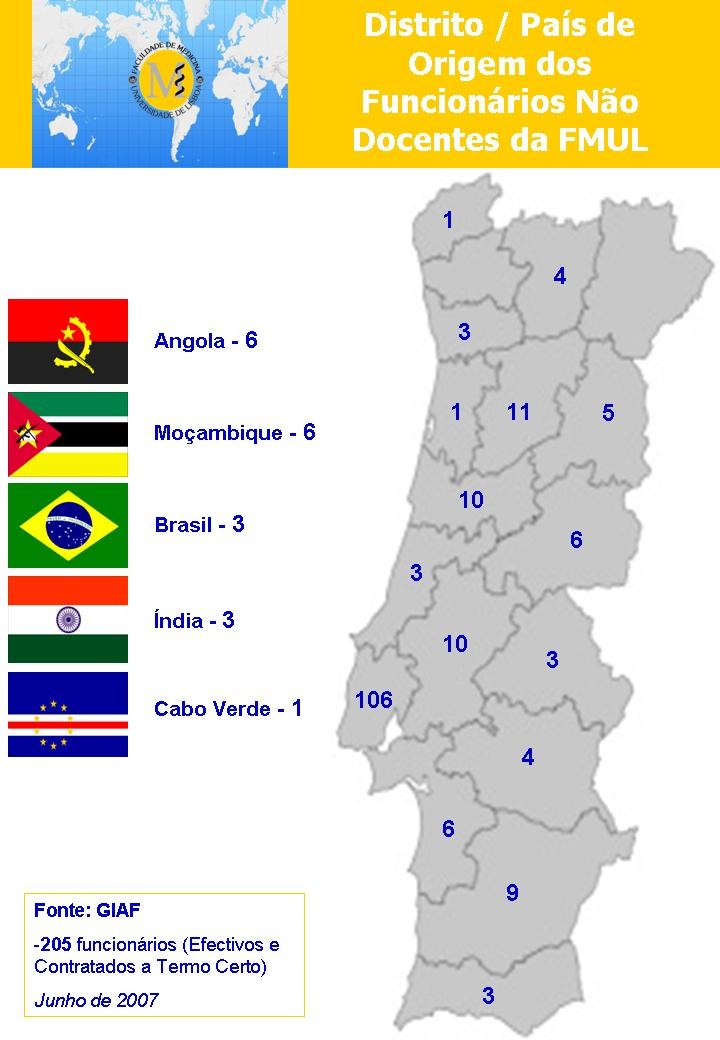
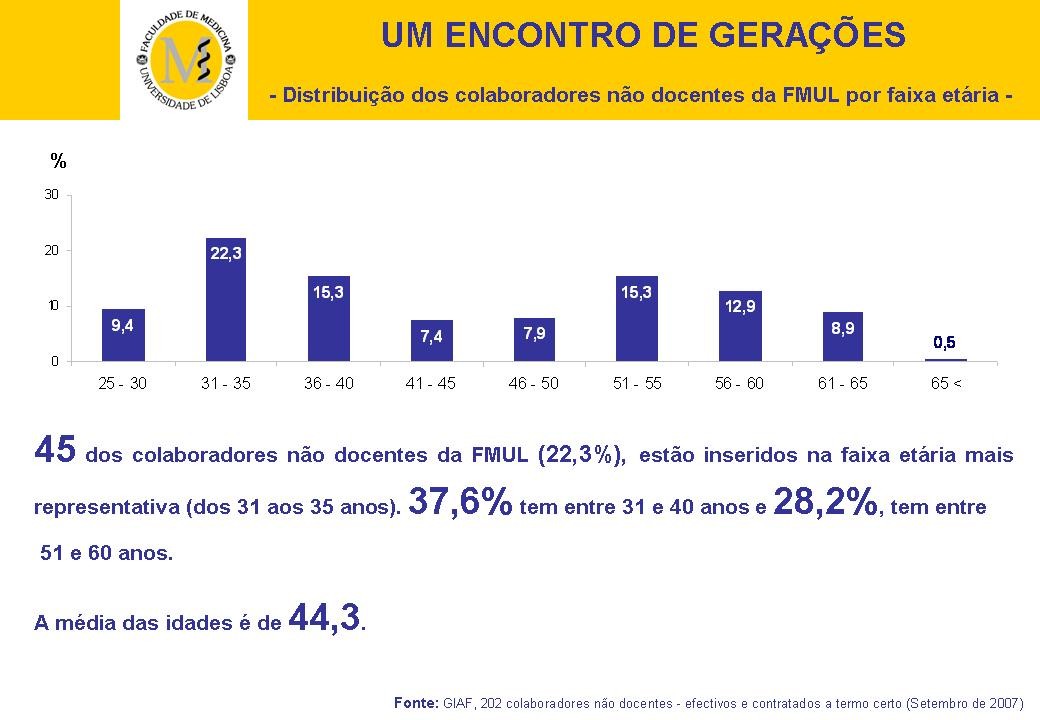
A curious fact about the “Birthday” month: David learned the reason that explained a fact that intrigued him, why many people were absent during March. As it turned out, most colleagues had birthdays in March!

My participation was brief, since at the time I worked with the UL Rector’s Office in an external evaluation project conducted by the European University Association and 50% of my activity was carried out physically at UL. Naturally, even if I wanted to continue, I was no longer available, so I had to leave this project. My contribution to the news is not very relevant, in the same way that my participation in the newsletter was not.
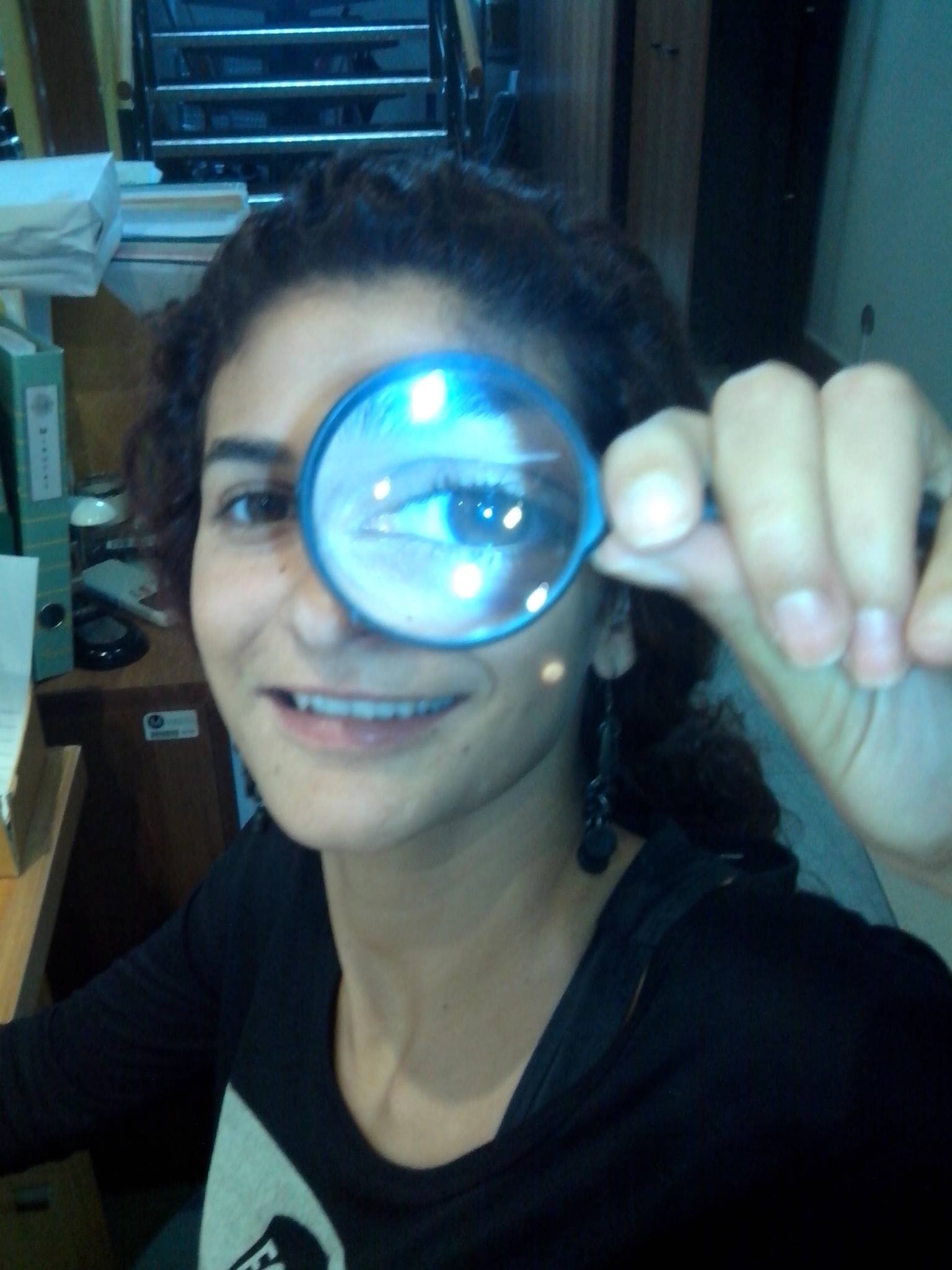
Lara Ponte (she was involved in the Newsletter for 3 years and works in the Pedagogical Area)
It was with great surprise that I received the invitation to join the FMUL newsletter team in 2011, a project I already admired because I thought it distinguished itself from others for its originality. The topics covered were not restricted to Science, Medicine, or Teaching...
A little hesitant to accept the invitation due to lack of time, afraid of not being able to meet expectations, but with a great desire to be part of what some called “the wonderful team”, I did not do much thinking and went in head on. I am so happy I did…
In the 20 years that I have been working at FMUL, it was perhaps one of the projects I most enjoyed participating in, due to the constant challenges, but mainly because of something that I praise a lot, the camaraderie, the spirit of mutual help “I have more time now, don't worry, I will take care of that… ”
The meetings ... it was so good to go to News meetings, we exchanged ideas, some were hilarious, we laughed a lot, sometimes we rambled, but above all we produced and produced well, and, no matter how much we thought it would not go so well this time, the result was always good.
The problem of lack of time started to get bigger and bigger, I started to feel that I was increasingly failing with my obligations and mainly with my colleagues. This made me decide to stop in 2014.
I have a feeling of “mission accomplished”, learning and friendship that I intend to preserve for many years.
Congratulations to what the newsletter represented and continues to represent at FMUL and especially congratulations to all those who took part in these 100 issues.
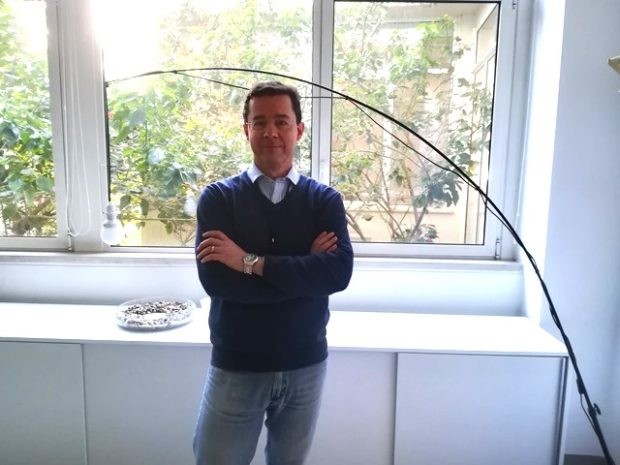
Miguel Andrade (he was involved in the Newsletter for 6 years, comes from the Administrative Areas and works at the Institute of Preventive Medicine and Public Health)
If I had not been conditioned by the chronic and almost permanent work overload, which definitely characterizes the daily lives of many who will read this, I would certainly still be part of the team that produces the FMUL Newsletter.
However, such a mission needs more than just rapture, enthusiasm and motivation.
Even though the processes today are different and much has evolved positively in a short time, the passion is no longer able to mitigate the growing antagonistic feelings that were germinating in my spirit, namely that guilty feeling that we are not doing our best because there is work we are responsible for that is overdue and this may compromise the date scheduled for the next issue. In these circumstances, any optimistic impulse that made us accept the initial invitation, generously made by colleagues who trusted our ability to help the team, falls very easily to the ground.
I even took part in wall papers and I am from the time when newsletters were actually called information bulletins, even electronic versions, so the joy I felt was not due to the project being a novelty. It would have been extremely simple and uncomplicated to participate both in the production and writing processes, with that irreverence of those who were not invited to this role, but who have a natural appetite for experimentation and discovery.
At a certain point it became too obvious that our amateur work was not sustainable, especially in light of the most recent signs of the evolution of this medium at the time, so I very sincerely admit that I stayed while it was possible for me, essentially to make the most of the opportunity that I had been given, before the first specialized colleagues started to arrive, which is why I tried to experience almost all the tasks that contribute to the final product.
Although I was always aware of the institutional reality in which we found ourselves, I was not always in agreement with most of the teammates or even with the trajectory or evolution of our work. Still, I have always accepted, with a democratic and pluralistic spirit, the decisions that, even contrary to my ideals and proposals, made our FMUL Newsletter what it is and which I continue to be proud of.
Time, that eternal and source of wisdom, would provide me with the necessary tools to change some of my beliefs but similarly to reinforce the value and timeliness of many of my suggestions, which at the time were not accepted by the majorities.
If asked if I would do the same again, even knowing the outcome in advance, the answer would clearly be yes.
It was very worthwhile to embrace a passionate project and professionally work with very interesting people.
From this coeval anguish caused by statistics that revealed a reduced number of hits, I gained the habit of becoming a faithful and assiduous reader, once on this side.
I admit that I am not at all sorry to remain, even today, a loyal follower of the work of my younger colleagues.

Ana Cristina Mota (she worked at the newsletter for 5 years and is currently in the Library)
I remember as if it were today my first Newsletter meeting on 25 June 2014. This was the moment that marked the beginning of my participation in this media that allows us, even far away, to be close to our readers and the entire FMUL community. I was immediately warmly welcomed by the entire team. The contact and experiences with everyone allowed me not only to meet new colleagues, but also to learn from them and get to know others better.
The dedication and effort of all those who worked in the Newsletter was always extraordinary. Bearing in mind that we all had other functions inherent to our professional activity, the contribution and commitment of all in joining the necessary efforts to bring this project to life must be commended. The commitment of all will always remain in my remembrance, ranging from the scheduling of our meetings, to the hundreds of emails exchanged in order to decide what would come out in the next issue, the distribution of tasks, the proofreading of articles, etc. - all to provide the best possible quality to this Newsletter that belongs to all of us.
This was a challenging project that gave me satisfaction when each new issue came out. It has always been our goal to provide the best content and the best quality possible, in order to continue such an important project, to attract new readers and those who had already become our regular readers. It allowed me to get to know our FMUL community better, but also other colleagues who regularly went unnoticed.
I would like to take this opportunity to express my personal thanks to all those who welcomed me with open arms and, at the same time, congratulate and wish the editorial team much success. May they continue to surprise us!
Joana Sousa
Editorial Team

